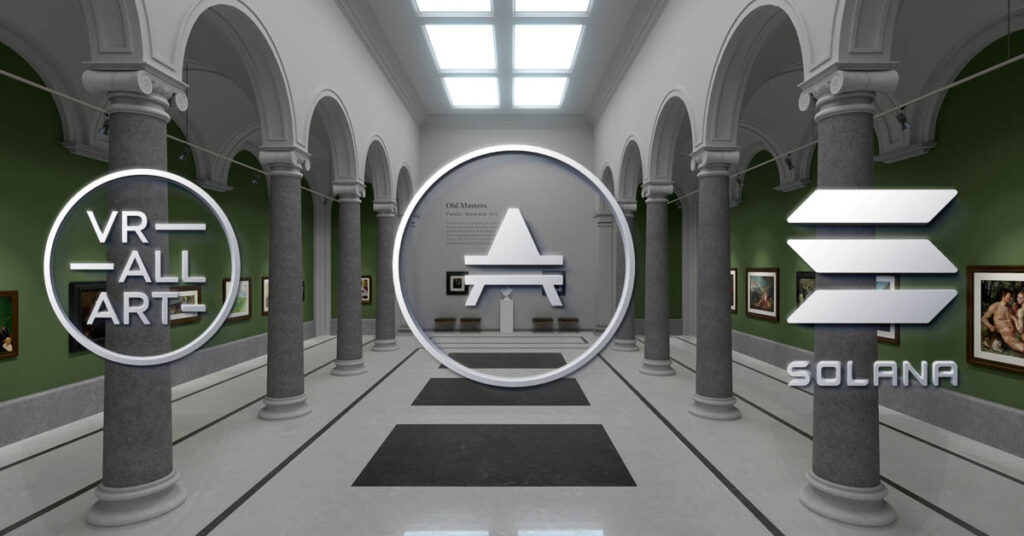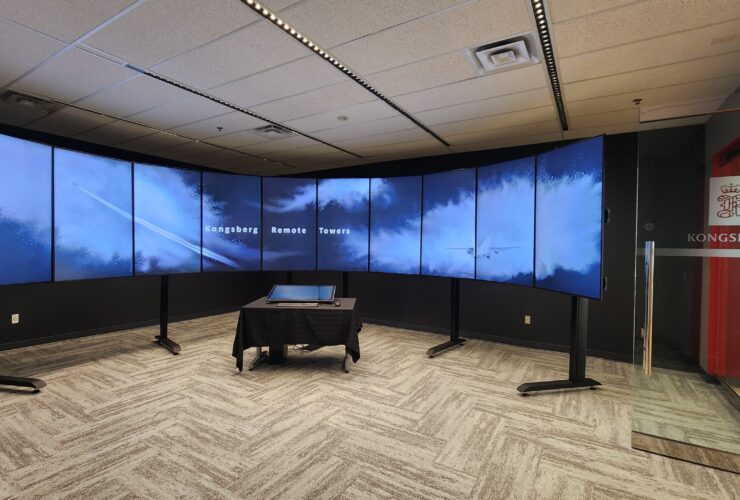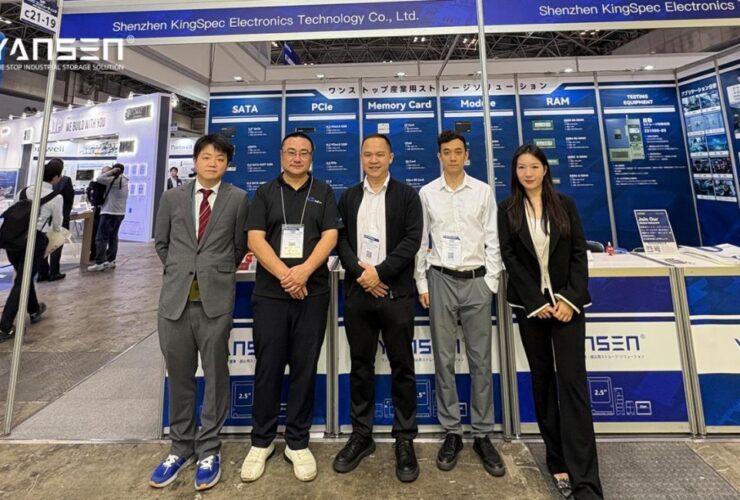The NFT Art Market Just Got Safer and Faster – VR-All-Art Integrates Solana Blockchain to Develop New Protocol
Art Exhibition Platform Fights to Bring Liquidity and Regulation to the NFT Market
VR-All-Art, one of the leading platforms for exhibiting and acquiring art in virtual reality, today announced an integration with the Solana blockchain. The adoption of blockchain infrastructure for virtual exhibitions is meant to ease art trade in virtual reality while bringing liquidity and regulation to the growing NFT art market. The platform will ensure that art registered on the blockchain is compatible with established regulations and copyright laws by developing the All-Art Protocol on Solana.

With the All-Art Protocol, VR-All-Art is aiming to bring constant liquidity to the world of tokenized art by creating a unique type of AMM (automated market maker) liquidity pools for NFTs. The protocol introduces a new standard, the NFT-PRO, designed for stakeholders in the art market. The NFT-PRO standard will enable artists to customize license rights for each art piece they create and embed them into NFT-PRO smart contracts. Through this mechanism, the All-Art Protocol will protect both artists and collectors, while enabling new use cases for owning, exhibiting and trading art on the blockchain.
“What we have witnessed with the latest trend in registering art as NFTs is a lack of proper infrastructure to handle the demand,” said Vitomir Jevremovic, CEO and Founder of VR-All-Art. “Ethereum transactions are slow, while the fees for minting and trading NFTs are skyrocketing. The environmental impact of a single NFT mint is enormous. This is not sustainable. Artists and galleries need affordable ways to put their art on the blockchain and have real-time transactions to handle live auctions. This is why we have chosen Solana. It is the fastest and most promising blockchain with a low energy-consumption footprint. We simply need things to work when people are minting NFTs and creating virtual exhibitions.”
Talking about the NFT standard currently in use, Jevremovic said, “The art market got a good introduction to what blockchain can do for it, but it was a tough lesson to learn because NFTs are just not a good enough solution.” He went on to state, “With the current NFT model, you basically own a string of text in the form of a hash or a link. This is not an art piece. We need better ways to incorporate art license rights into smart contracts. We believe the global art market needs a blockchain standard in line with the regulatory framework for art. Only then can we expect the art market to expand and scale in the digital and virtual space, with more people engaging and transacting value through NFTs.”
Anatoly Yakovenko, the President of the Solana Foundation said, “Fast, low-cost NFTs have the potential to bridge legal rights and digital authentication in ways never before possible. I’m delighted the All-Art Protocol is choosing to build on Solana, and look forward to their launch.” VR-All-Art invites other platforms to use the All-Art Protocol and join its efforts to regulate the NFT art market and provide more liquid assets for stakeholders.
Don’t miss any news about the All-Art Protocol and hot NFT topics on Twitter @allartprotocol.
About VR-All-Art
VR-All-Art is an established platform in the art and XR space. It is a platform and a marketplace for artists, galleries, museums and the general public to exhibit, explore and acquire art in virtual exhibitions. A virtual space, a metaverse of galleries and exhibition spaces with no physical boundaries, it is revolutionizing art exhibitions and art spaces by giving new power to artists as they are no longer constrained to the limitations of real world space and time.
To learn more, please visit https://vrallart.com/. To learn more about the All-Art Protocol, please visit https://allart.io/.
About Solana
Solana is a high-performance Proof of Stake (PoS) blockchain focused on delivering scalability without sacrificing decentralization or security.
Until now, blockchains have been single-threaded computers, guaranteeing no two transactions conflict if executed in parallel. Solana unlocks concurrent GPU-parallelization for the first time, using Proof of History (PoH), a clock before consensus, delivering high speed, low latency, and inexpensive transactions, all at layer 1 without sharding.
Developed by a team of former Qualcomm, Apple, Intel, and Dropbox engineers, Solana is stewarded by The Solana Foundation and is advanced by a loyal community of decentralized developers around the world. To learn more, please visit https://solana.com/.
News Source: VR-All-Art


